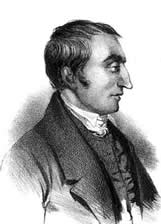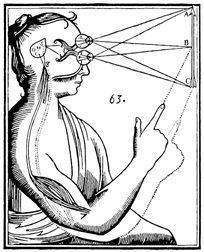What is Scientism?
Source: biologos.org

A scientist, my dear friends, is a man who foresees; it is because science provides the means to predict that it is useful, and the scientists are superior to all other men.
--Henri de Saint-Simon
Scientism is a rather strange word, but for reasons that we shall see, a useful one. Though this term has been coined rather recently, it is associated with many other “isms” with long and turbulent histories: materialism, naturalism, reductionism, empiricism, and positivism. Rather than tangle with each of these concepts separately, we’ll begin with a working definition of scientism and proceed from there.
Historian Richard G. Olson defines scientism as “efforts to extend scientific ideas, methods, practices, and attitudes to matters of human social and political concern.” 2 But this formulation is so broad as to render it virtually useless. Philosopher Tom Sorell offers a more precise definition: “Scientism is a matter of putting too high a value on natural science in comparison with other branches of learning or culture.” 3 MIT physicist Ian Hutchinson offers a closely related version, but more extreme: “Science, modeled on the natural sciences, is the only source of real knowledge.” 4 The latter two definitions are far more precise and will better help us evaluate scientism’s merit.
A History of Scientism
The roots of scientism extend as far back as early 17th century Europe, an era that came to be known as the Scientific Revolution. Up to that point, most scholars had been highly deferential to intellectual tradition, largely a combination of Judeo-Christian scripture and ancient Greek philosophy. But a torrent of new learning during the late Renaissance began to challenge the authority of the ancients, and long-established intellectual foundations began to crack. The Englishman Francis Bacon, the Frenchman Rene Descartes, and the Italian Galileo Galilei spearheaded an international movement proclaiming a new foundation for learning, one that involved careful scrutiny of nature instead of analysis of ancient texts.
 Descartes and Bacon used particularly strong rhetoric to carve out space for their new methods. They claimed that by learning how the physical world worked, we could become “masters and possessors of nature.” 5 In doing so, humans could overcome hunger through innovations in agriculture, eliminate disease through medical research, and dramatically improve overall quality of life through technology and industry. Ultimately, science would save humans from unnecessary suffering and their self-destructive tendencies. And it promised to achieve these goals in this world, not the afterlife. It was a bold, prophetic vision.
Descartes and Bacon used particularly strong rhetoric to carve out space for their new methods. They claimed that by learning how the physical world worked, we could become “masters and possessors of nature.” 5 In doing so, humans could overcome hunger through innovations in agriculture, eliminate disease through medical research, and dramatically improve overall quality of life through technology and industry. Ultimately, science would save humans from unnecessary suffering and their self-destructive tendencies. And it promised to achieve these goals in this world, not the afterlife. It was a bold, prophetic vision.As this new method found great success, the specter of scientism began to emerge. Both Bacon and Descartes elevated the use of reason and logic by denigrating other human faculties such as creativity, memory, and imagination. Bacon’s classification of learning demoted poetry and history to second-class status.6 Descartes’ rendering of the entire universe as a giant machine left little room for the arts or other forms of human expression. In one sense, the rhetoric of these visionaries opened great new vistas for intellectual inquiry. But on the other hand, it proposed a vastly narrower range of which human activities were considered worthwhile.
The Enlightenment
A century later, many of the Enlightenment intellectuals continued their love-affair with the power of natural science. They claimed that not only could science enhance the quality of human life, it could even promote moral improvement. The Encyclopedist Denis Diderot aimed to collect, organize, and preserve all human knowledge so that “our children, becoming better instructed, may become at the same time more virtuous and happy.” 7 Many of the French philosophes even claimed that science could be a substitute for religion. In fact, during the French Revolution, numerous Catholic churches were converted into “Temples of Reason” and held quasi-religious services for the worship of science.8
Positivism
The 19th century witnessed the most powerful and enduring formulation of scientism, a system called positivism. Its founder was August Comte, who built his positive philosophy from a deep commitment to David Hume’s empiricism and skepticism.
[...]
Read the full article at: biologos.org





















